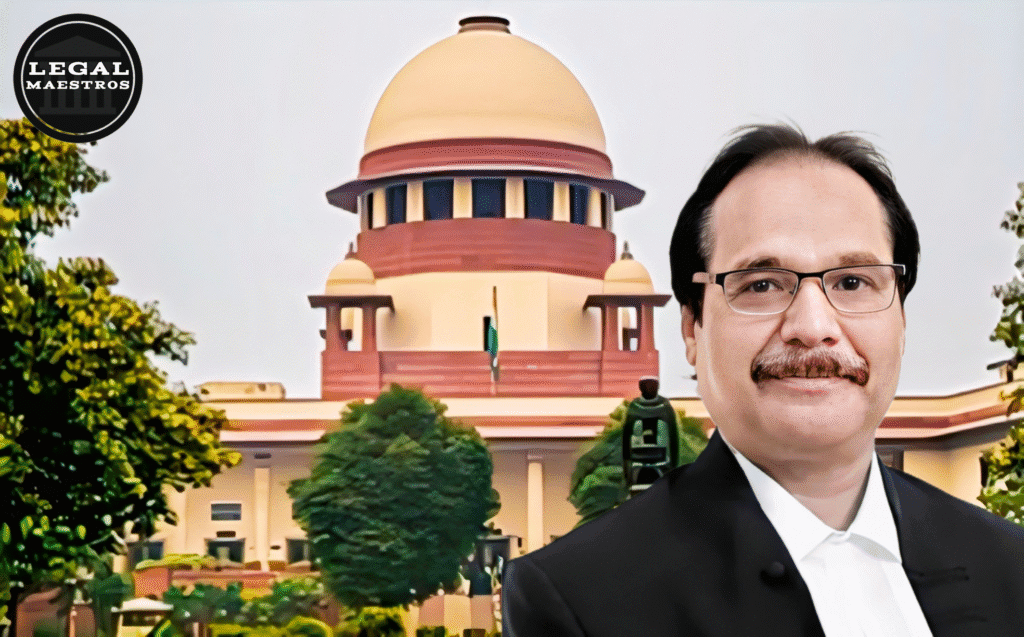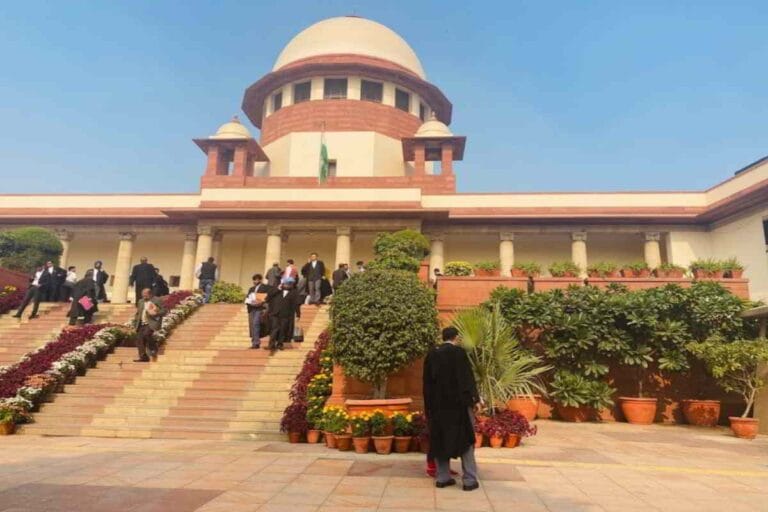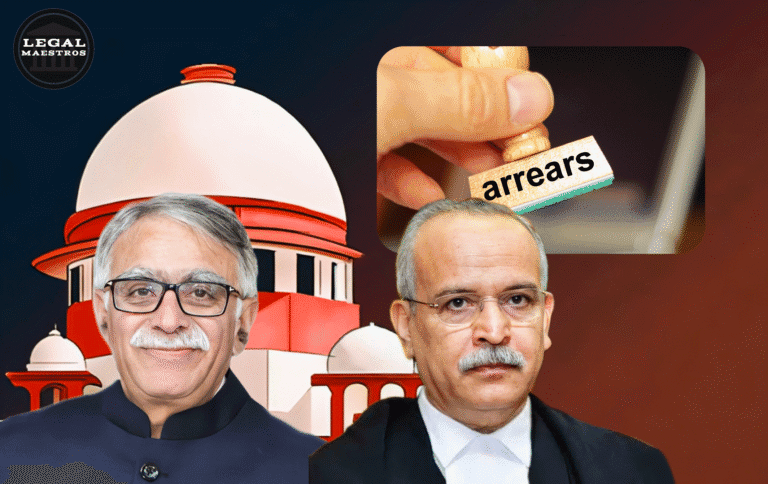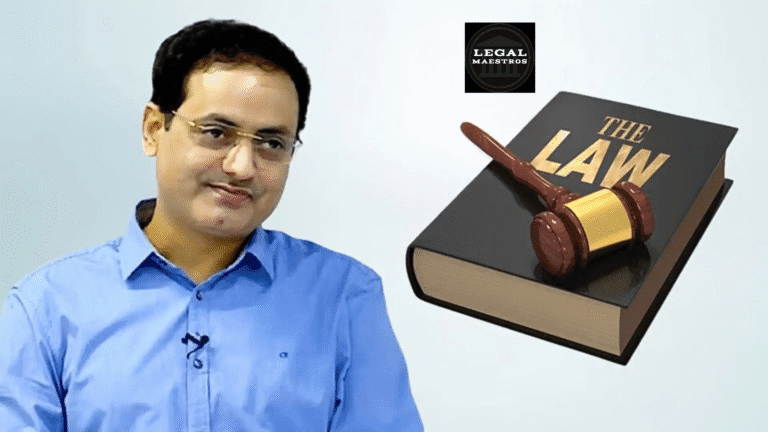
A landmark decision was handed down by the Supreme Court of India on April 4, 2025, in the case of Jogeswar Sahoo and others versus the District Judge of Cuttack and others.
The individuals who filed the appeal were retired stenographers who had previously been awarded financial rewards as a result of promotions that were granted retrospectively in 2017. These benefits were given by the District Judge of Cuttack in accordance with Office Order No. 63.
The recommendations that were linked to the implementation of the Shetty Commission Report were the basis for the decision.
For More Updates & Regular Notes Join Our Whats App Group (https://chat.whatsapp.com/DkucckgAEJbCtXwXr2yIt0) and Telegram Group ( https://t.me/legalmaestroeducators ) contact@legalmaestros.com.
Furthermore, orders dated 12.09.2023 and 08.09.2023 were issued to recover sums from these retired employees. These orders were issued several years after the promotions in question and three years after the people had retired.
According to the logic, the financial gains were improperly distributed since they were based on an inaccurate understanding of the recommendations made by the Shetty Commission. Given that this recovery was affirmed by the High Court of Orissa, the appellants decided to take their case all the way up to the Supreme Court.
A Crucial Legal Matter That Is Before the Court
The most important question that the Supreme Court deliberated on was whether or not it is constitutionally possible for the government to recover financial advantages that were awarded during service, particularly after retirement, when the employee did not commit any acts of fraud or deception.
Furthermore, the question of procedural fairness was brought up due to the fact that the recovery was imposed without providing the appellants with the opportunity to be heard.
For More Updates & Regular Notes Join Our Whats App Group (https://chat.whatsapp.com/DkucckgAEJbCtXwXr2yIt0) and Telegram Group ( https://t.me/legalmaestroeducators )
Consideration Given to Provisions and Principles
In this particular instance, the focus was not on any particular provision of the statute; rather, it was on broad principles of administrative law, equity, and judicial discretion.
In order to develop a uniform legal stance on the recovery of excess payments from employees, the Court looked at past landmark rulings. It was determined that the following essential issues and legal principles were investigated:
There was no instance of fraud or misrepresentation:
The recovery of extra compensation after years of receipt, particularly after retirement, is often not permitted. This is the case even if the employee has not committed fraud or made a misrepresentation.
Equal Treatment Doctrine:
It is not because of a legal right that is already vested in the employee that recovery is not permitted in these kinds of instances; rather, it is because such action would be unfair and severe. As well as the importance of maintaining a balance between law and justice, the Court stressed the welfare obligations of the state.
(According to the Principle of Natural Justice) The Right to a Fair Hearing
The Supreme Court expressed its disapproval of the recovery orders, believing that they were imposed without providing retired workers with any opportunity to voice their opinions. The principle of audi alteram partem, which is a fundamental principle of natural justice, was violated by this action.
A mistake made by the employer in administration:
The financial benefit was received as a result of an official order, and the employer’s misunderstanding of the rules was the source of any potential fault that may have been present. It was determined that it was unfair to punish employees for administrative errors, particularly those employees who had no place in the decision-making process.
Release by the discretion of the judiciary:
As was established in past decisions such as Sahib Ram v. State of Haryana, Syed Abdul Qadir v. State of Bihar, and State of Punjab v. Rafiq Masih (White Washer), the Supreme Court made use of its discretionary power in order to avert injustice.
Notable Examples of Previous Cases
The rationale of the Supreme Court was constructed by referring to a number of other precedent-setting decisions. Other important cases that are mentioned include:
The recovery was denied in Sahib Ram v. State of Haryana (1995) because the employee did not commit any fraudulent acts.
With regard to the case of Shyam Babu Verma v. Union of India (1994), it was decided that overpayments that were given in good faith but were based on administrative errors cannot be recovered.
In the case of Thomas Daniel v. State of Kerala (2022), it was brought to light that retired workers should not be subject to recovery if there was no evidence of fraud.
Rafiq Masih v. State of Punjab (2015): Provided categories where recovery would be inadmissible, such as retired employees, low-paid workers, and situations where recovery is begun a significant amount of time after the overpayment.
The need of shielding retired and low-paid employees against arbitrary recovery proceedings taken by the state is repeatedly brought to light by these precedents through their persistent example.
The Evaluation and Decision of the Court
In this particular case, the appellants were not gazetted officers, nor had they engaged in any activities that were considered illegal. The Court took note of the following:
The administrative order issued by the District Judge was the reason for the overpayments that were made.
The approval of the High Court was not taken into consideration at the time that the benefit was granted.
Six years after the benefits were initially granted and three years after the individual retired, recovery orders were issued.
Prior to the issuance of the recovery orders, there was no window of opportunity for hearing.
When the criteria that were established in earlier cases, particularly Rafiq Masih, were applied, the Supreme Court came to the conclusion that the recovery could not be maintained. Taking into consideration the financial situation of retiring workers and the fact that there was no evidence of dishonest behavior, it was quite evident that imposing recovery would be both unjust and severe.
The appeal was therefore granted by the Supreme Court, which also invalidated the judgment of the High Court and set aside the recovery orders that were issued on September 12th and September 8th, 2023.
Resulting Consequences of the Decision
The protection of the interests of retired public personnel is reaffirmed by this ruling, which establishes a precedent for doing so. This point has been reaffirmed by the Supreme Court, which states that:
If there is no due process and no hearing, the government will not be able to reclaim any excess payments.
Employees who have retired, particularly those who came from lower service classes, are entitled to protection from the difficult financial recovery.
Justice and fairness ought to be the guiding principles for state conduct in service problems.
Before penalizing innocent personnel for clerical or interpretation errors, it sends a strong message to all government departments, mandating that they behave within the confines of fairness and that they improve internal administrative systems.
The verdict that was handed down by the Supreme Court in the case of Jogeswar Sahoo and Others versus District Judge, Cuttack and Others demonstrates a thoughtful process of applying constitutional principles, administrative fairness, and judicial equity.
As a result, retired employees are protected from undue difficulty, and the notion that mistakes made by the administration should not become a burden on those who served with honesty and diligence is emphasized.
Not only must justice be carried out, but it must also give the impression that it has been carried out in the eyes of those who are most vulnerable.
This is especially true for retirees, whose lives are dependent on their pensions and who are unable to return to work in order to compensate for improper recovery. This ruling is a particularly striking reiteration of that philosophy.




1 thought on “Recovery from Retired Employees Without Hearing: Justices P.S. Narasimha & P.K. Mishra”